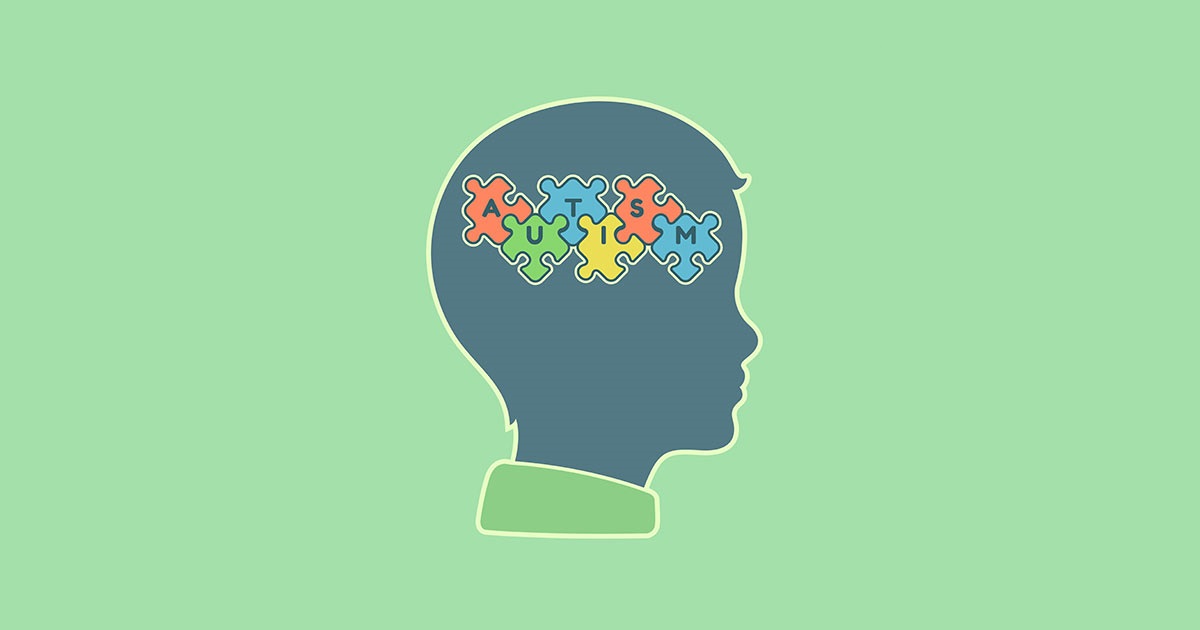
Autism is a term that gets thrown around so carelessly and often that it might even cause panic in some parents. Even though it has been around forever, it feels like there’s been an epidemic of cases of autism in teens in the past decade or so, but why is that?
To learn more about this condition, the number of kids who have it, how it manifests and its symptoms, and what you can do about it as a parent, keep reading, and we’ll try to answer all your questions.
In this article

You’re probably wondering how autism begins in the first place, and you might even be thinking whether your child may have developed autism recently or during their teenage years.
The answer is “no,” as autism is not something that’s developed during life but is something you’re born with. However, it can go unnoticed for extended periods, especially if a child has high-functioning autism.
It’s worth noting that the earlier you notice signs of this condition in teens, the better and faster you can help your child, and that’s why it’s vital to look for specific indications. It would be best to look for such signs in children of all ages, regardless of whether you have a five or fifteen-year-old child.

Although it might feel like the word “autism” gets thrown around more frequently now than it was a few decades ago, it’s not something that recently came into existence. Young children and teens have always been struggling with autism.
However, it’s only thanks to the latest advancements in diagnostic tools and the rising awareness of autism that we can conclude if someone has it. Some recent numbers suggest that around 3.26% of the tested teens had autism, with a much higher number of boys having it than girls.
It’s worth noting that the tested number was about 12,500, which may not be entirely indicative of real-world stats. Still, that number is likely higher, as high-functioning autism in teens often goes unnoticed, so many kids often go undiagnosed.
As we’ve mentioned above, high-functioning autism in teens often goes unnoticed. However, there are particular signs that parents and teachers can look for if they suspect a child might have autism, although a professional diagnosis will still be required. We’ve divided these signs of autism into four categories, which you can find below.

One of the first signs of autism in teens can be noticed in their behavior – they often do repetitive tasks or engage in behaviors that might seem unusual to a bystander or even a parent.
When they’re younger, these children will often play with their toys the same way every day or arrange them in a particular manner. If something happens to one of their toys or that order changes, no matter how minor the change, they can get agitated and throw a tantrum.
Teens with autism also follow routines and obsess over certain items or interests. Following the pattern gives them peace of mind – if they miss one part, they can get quite upset about it.

Kids with autism often have difficulties talking to or interacting with others. That’s why social settings, like school, can be pretty challenging for them and often cause them trouble and anxiety. You might even hear them saying they “can’t fit in.”
A teen with autism might have trouble making friends at school, preferring to communicate online, as they find it much more manageable. They’re bad at interpreting a face-to-face conversation and often mistake social cues.
Such teens also often avoid eye contact when talking to someone or even lack facial expressions during a conversation, which might even cause other children to tease them.
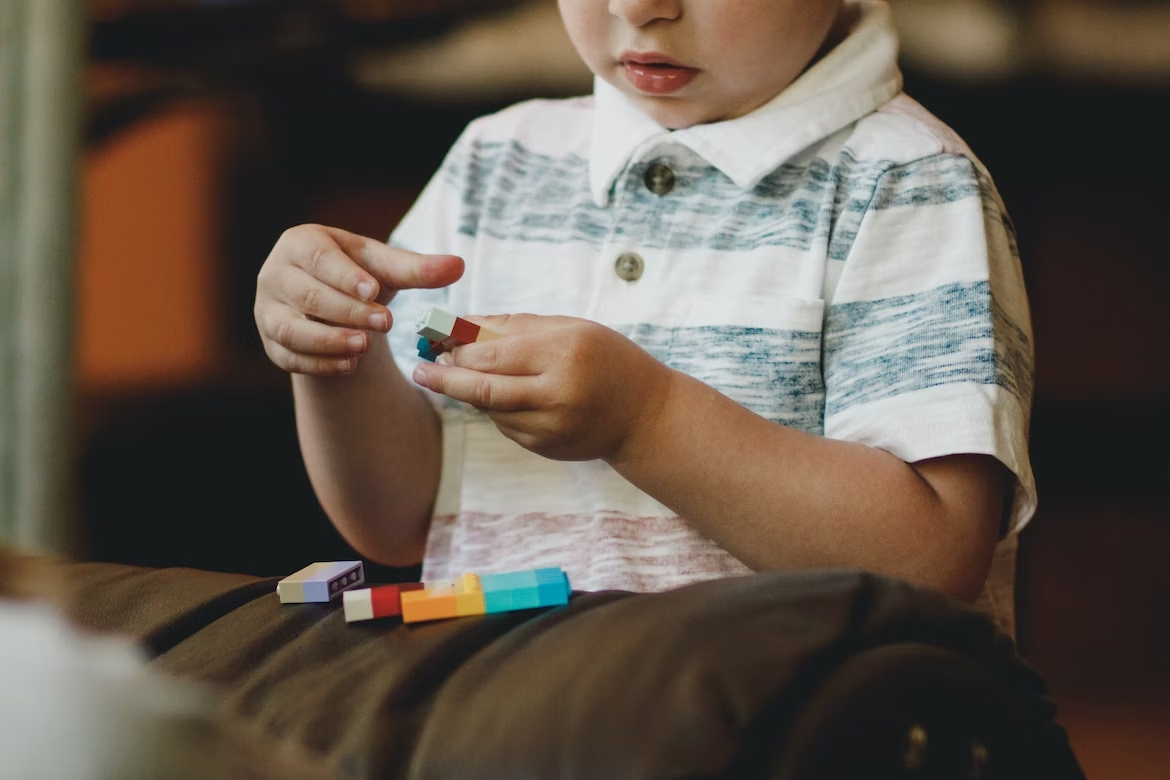
Sensory difficulties are another easily recognizable sign in teens with autism. Such children often find crowds and loud noises overwhelming, and such situations can cause a sensory overload.
Many autistic kids are also hypersensitive to bright or fluorescent lights. Some find pungent tastes, different textures, or stronger smells overbearing and might react to them as they can’t tune them out or ignore them as other people can.
They’re also overly sensitive to touch and might have a strong reaction to it, going as far as throwing a tantrum, which can be one of the most apparent signs of autism. However, on its own, it doesn’t have to mean anything.
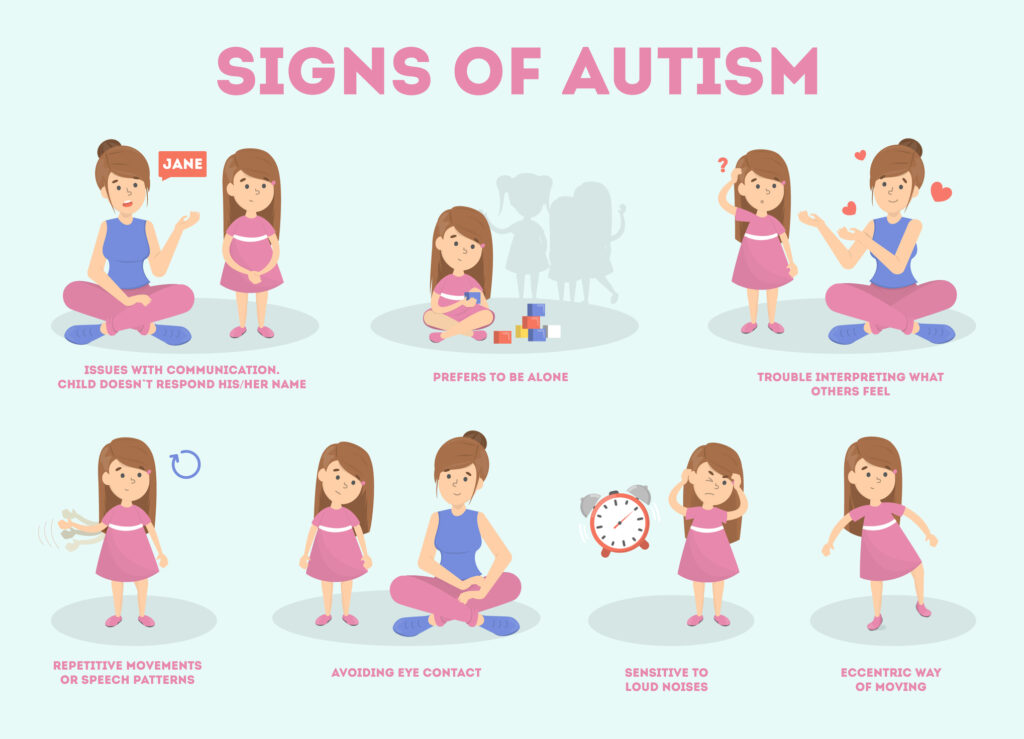
Other signs also exist, and most people with autism share such characteristics. For example, most kids have trouble with language, movement, and learning skills, which seem too low for their age.
These also include unusual mood swings, random changes in eating or sleeping habits, hyperactiveness, impulsiveness, and fear that ranges from too low to too high.
You might also notice them constantly repeating the same word or phrase, spinning in circles, or rocking their body. However, it’s worth noting that sometimes they just might be anxious or singing a random song.
Noticing any of the abovementioned signs doesn’t have to mean that your child has autism. For example, other behavioral disorders exist – just because you detect one aspect doesn’t mean it’s definitive. That’s why a proper diagnosis is also crucial.
Going from suspecting that your child might have autism to being sure of it or getting a positive diagnosis can feel like the end of the world. However, kids or teens with autism can still function in today’s society, and there are things you can do for your child that might make them feel better.

Learning of your child’s autism and realizing it’s not curable can be terrifying and overwhelming, just like a social situation can be overwhelming for a child with autism. However, you must stay enthusiastic for your child’s benefit and care for them.
Although you might even hear of conflicting treatments, you should create a personalized plan that’ll be the best treatment for your child. You know your child best, and you can be the best judge of what’ll work.
That’ll allow you to craft a treatment plan that will fit your child’s needs, including building on their interests and teaching them at a tempo that suits them.

Although dealing with an autistic child can be incredibly intense and exhausting and can vary based on where they are on the autism spectrum, you must never give up. Think about the possible improvements and things you can do to help, and don’t focus on the negative aspects.
Remember, high-functioning autism in teens often goes unnoticed, and that means you can teach your child to function as other people do.
Additionally, caring for an autistic child means caring for yourself, too, and your well-being, both physical and emotional, is vital in their treatment. When you’re doing good, you’ll be ready to get involved, work with professional care teams, and help your child in various ways.

Just because your child received an autism diagnosis doesn’t mean it’s the end of the world. It doesn’t necessarily make them different from other children, as they can still live the way others do and accomplish great things.
Accepting them for who they are is vital in helping them. It’ll positively affect their treatment, and your child will be able to develop various communication and social skills.
Moreover, understanding who they are and what they need means they can improve their motor skills, control their behavior in sensory-overloading situations, achieve academic success, and live healthier and more productive lives.
Since children with autism often have difficulties with face-to-face conversations and social settings, they find online friendships much easier since they don’t have to fake facial expressions and can better interpret what someone is saying.
However, such online conversations and friendships aren’t doing them any good and should be limited, while face-to-face interactions should be highly encouraged. They’ll need to practice their behavior in social settings to get better at controlling their emotions, tantrums, anxiety, etc.
Fortunately, there are many apps you can try to limit their online activities, and one such app is Wondershare FamiSafe, which is filled with fantastic features for children of all ages.
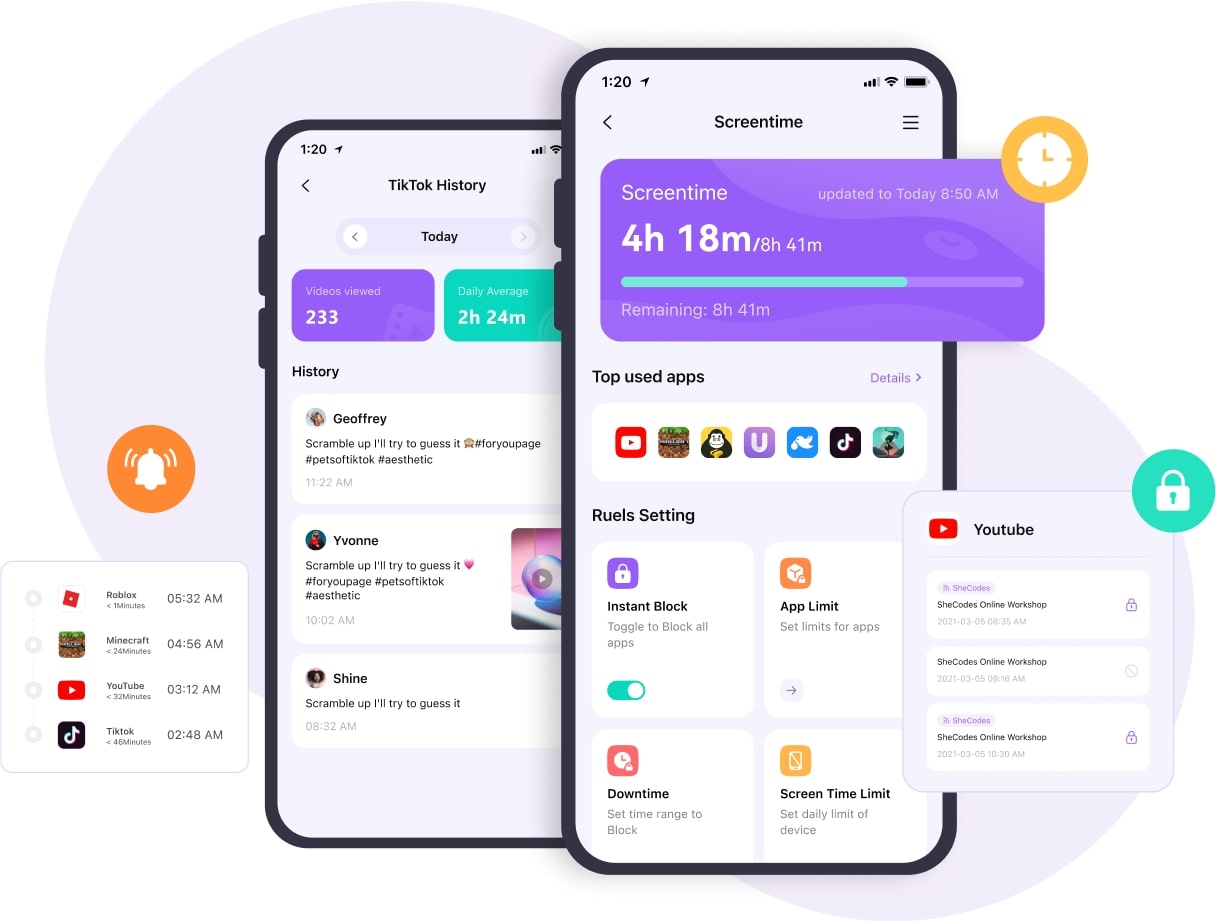
Whether you’re dealing with a young child for whom you might have to block certain harmful apps or set time limits on other social apps, a young teen for whom you might need web filters and safe search, or someone that’s almost 18, FamiSafe is the perfect app for you.
It contains content and web safety filters, and the app can scan for inappropriate content online and offline. Moreover, certain apps can be blocked while other educational ones are encouraged. The app also lets parents monitor their child’s screen time, activities, and location.
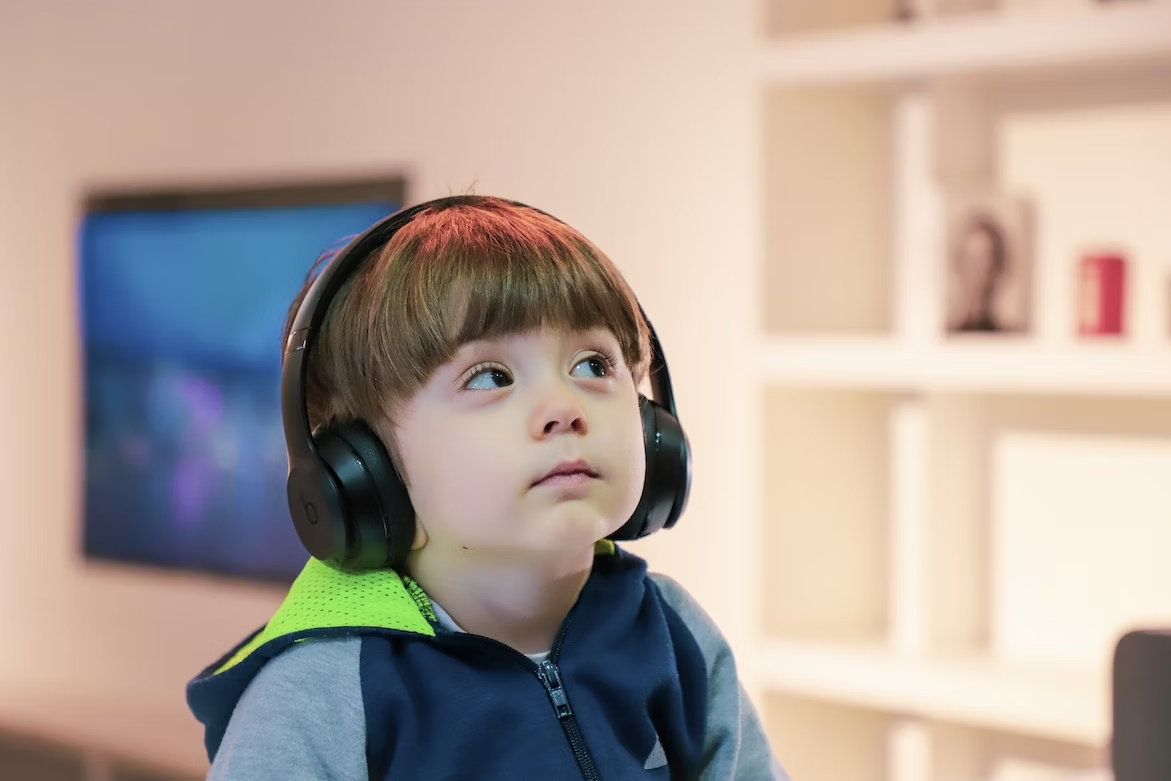
There’s a reason why a personalized treatment plan works best for such kids, and that’s because everyone is on a different part of the autism spectrum. That’s why you’ll need to learn to listen to your child and learn more about their distinctive triggers.
As mentioned above, kids with autism can show various sensory indications that are often quite different for different kids. You’ll need to identify what causes their disruptive behavior and learn more about things that induce stress, discomfort, and anxiety.
Look for nonverbal signs and facial expressions to do that, and it’ll allow you to prevent various accidents and negative responses.

Kids with autism love consistency and often function best when schedules are in place. That’s why creating a highly-structured routine and sticking to it can work wonders in autism treatment.
That involves scheduling their entire day, including school and playtime, and having regular times for meals and sleep. It also includes walks, sports, and therapy appointments.
Any changes to the schedule should be prepared in advance as they can cause adverse responses and tantrums. Additionally, possible disruptions, such as impromptu social visits, should be kept at a minimum and announced to the child so they can mentally prepare for it.
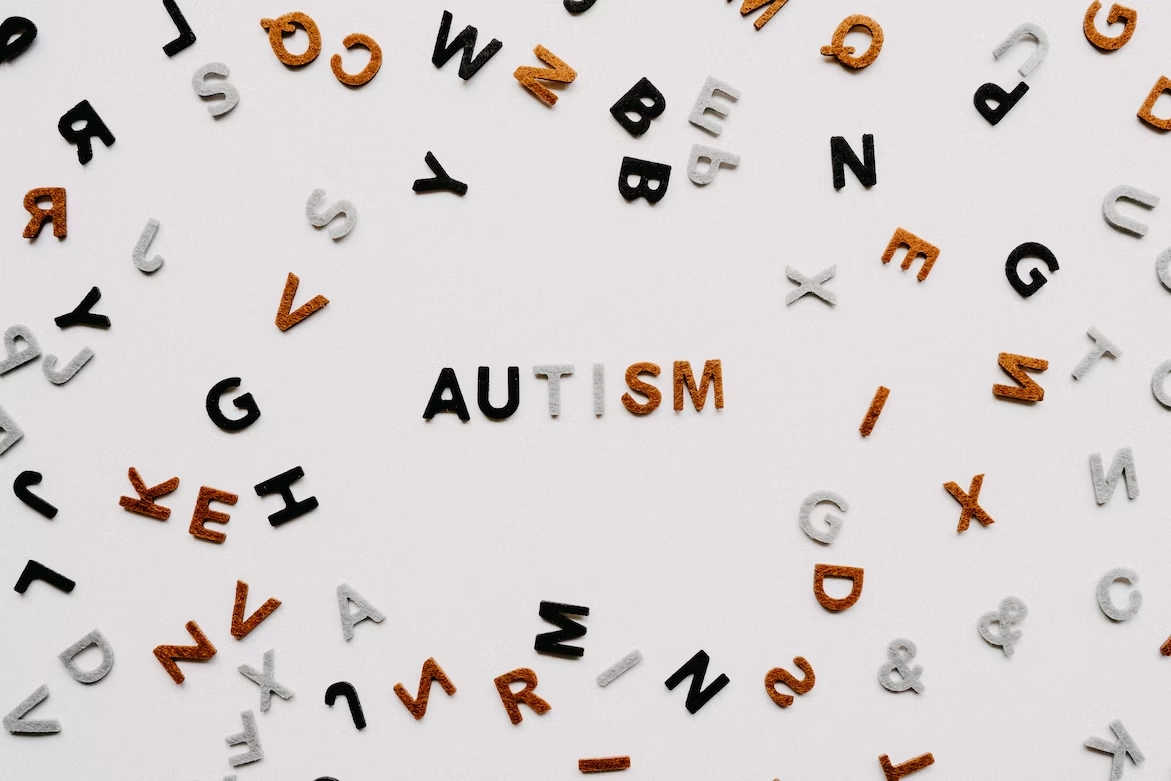
We all have different urges to say random things, move our bodies a certain way, or express ourselves in various manners. However, children with autism must act upon these urges, and understanding it’s the fault of their sensory needs is crucial in their treatment.
Parents must understand these needs, but they can also still provide kids with autism with a safe environment to act upon such urges. For example, investing in a trampoline can be an excellent way to eliminate the urge to jump up and down.
Although the term “autism” has been floating around the internet a lot in the past decade, not many people know it’s something you’re born with, often wrongfully thinking their teens might suddenly develop it.
If you suspect that your teen might have autism, various symptoms, which include behavioral, social, sensory, and other signs, can serve as pointers until you get a professional diagnosis for your child.
Fortunately, there are also many things parents can do for kids with autism, including creating a personalized treatment plan, listening and understanding their child’s needs, making a schedule and sticking to it, and being extra caring.
It also includes limiting your child’s online activities as they’re not doing them any good, and you can do so with a parental control app such as Wondershare FamiSafe, which can block harmful content and apps and regulate their online time.
